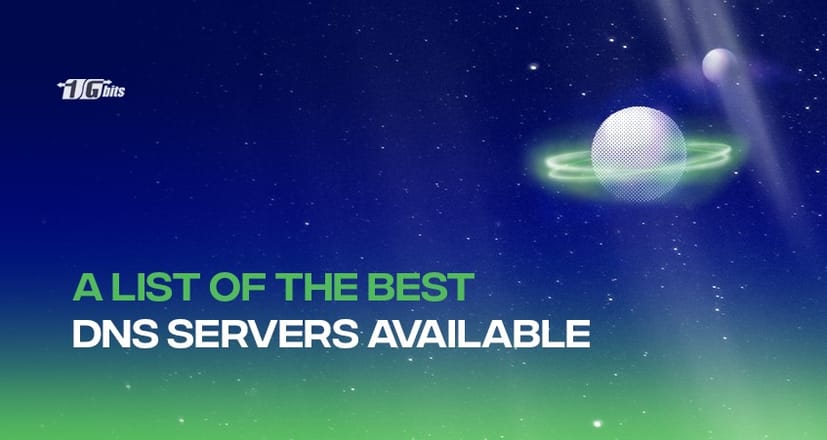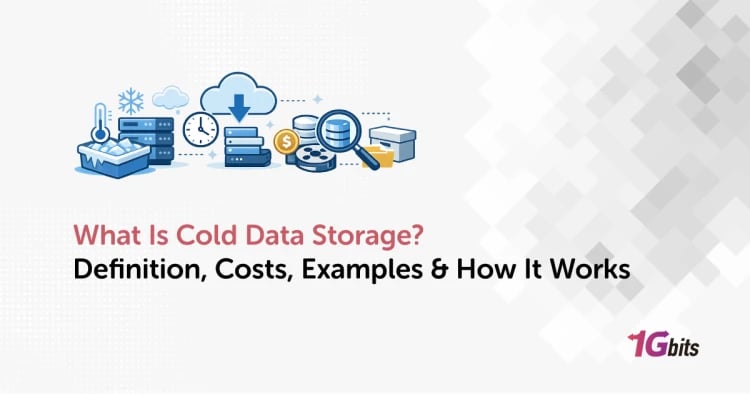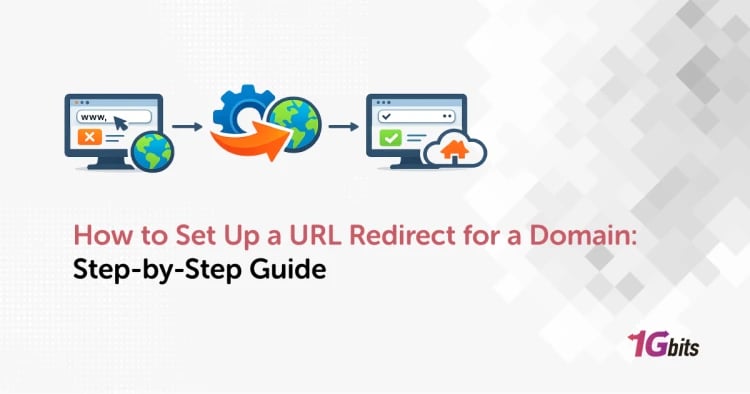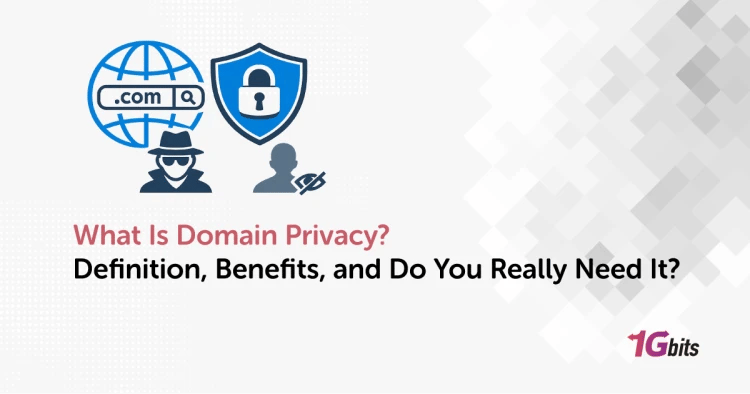What are the best DNS servers? Before getting to DNS servers, we should discuss how DNS works. Technically, every resource (website) accessible through the Internet is hosted on some web server, and each web server has a unique IP address.
To access a website, you must know the unique IP address of the server on which it is hosted. This address is a set of numbers like 192.168.0.5 or even more complex according to the new IP address system called IPv6.
Now naturally, memorizing such a sequence of numbers and relating them to a specific website is difficult for most people. Moreover, trying to remember multiple such IP addresses can quickly get very confusing since humans are used to identifying things by their names. So to eliminate this issue, the DNS or Domain Name System helps map IP addresses to easily recognizable names.
DNS servers act as bridges between hostnames and IP addresses. Whenever you enter a website URL in your web browser, your Internet Service Provider’s (ISP’s) DNS works in the background to locate the IP address of the webserver on which that website is hosted. Once it has done that, it helps fetch you the information present on that website. Thus, DNS servers are crucial to the working of the Internet.
There are multiple providers out there that offer DNS services at affordable prices. Known as third-party DNS servers, they offer several advantages over your default ISP’s DNS server. Through this post, let’s try to understand these advantages and look at a few of the best third-party DNS servers.
Why is it beneficial to use third-party DNS servers?
As already mentioned above, your ISP provides you with a DNS server by default for all your browsing needs. But looking beyond what your ISP offers can serve your best interests. There are several reasons for looking for alternative or third-party best DNS servers:
- Depending on your location, selecting a third-party DNS server can give better speeds while browsing the Internet.
- It can help you unlock region-blocked content.
- Using an alternate DNS server gives you the best data privacy since your ISP isn’t able to track your browsing history and sell it to advertisers.
- It gives you the best protection against security attacks like phishing, ransomware, malware, and more.
Now that you know the benefits of using third-party DNS let’s look at the best DNS servers that can serve the purpose.
Top 5 Best DNS Servers
There are several public DNS servers you can use. Discussed below are the features and highlights of the top 5 such servers that individuals, as well as businesses, can use.
-
Cloudflare DNS
Cloudflare DNS is one of the best public DNS servers from the well-structured web-infrastructure company Cloudflare. The consumer DNS service is known for its wonderful performance and independently audited privacy policy.
Launched in 2018, the public DNS service is powered by a variety of advanced technologies like global CD, reverse proxy, recursive DNS service, and many more. Cloudflare openly declares that its DNS service has access to more than 7 million domain names on the server on which it runs its DNS service.
Features
Ease-of-use is an important factor that contributes to Cloudflare’s popularity. It has an address that’s quite simple to remember. The server’s primary DNS address is 1.1.1.1, and the secondary one is 1.0.0.1. When you use these DNS servers, the Cloudflare service won’t block any content by design.
However, if you need to block malicious and adult content, you can use 1.1.1.3 and 1.0.0.3 addresses. The company is very vocal about privacy issues and never uses your browsing data for targeting ads. User IP addresses are never stored on the server, though it does store some data to deal with abuse or debug issues; that too is deleted within 24 hours.
Highlights
- The average query speed of Cloudflare DNS is 13.89ms
- Through their app, you can use Cloudflare DNS on your Android smartphone or iPhone. The highlight of the app is that it comes with a free VPN service known as WARP. If you want better performance, you can subscribe to their paid service WARP+
- It supports both security mechanisms, DNS-over-TLS and DNS-over-HTTPS
Cloudflare DNS is available as a free and paid service. The paid DNS service gets access to better security features and dedicated customer support. The premium plans include a PRO plan that costs $20 per month, a Business plan that costs $200 per month, and an Enterprise plan. The Enterprise plan’s pricing is customized and is offered on request.
-
Google Public DNS
Google introduced its DNS service in 2009 as a secure and faster alternative to local ISPs’ default DNS servers. The search engine major then introduced DNSSEC (DNS Security Extensions) validation for all its DNS queries.
In 2018, it became the largest DNS service handling a trillion queries per day. Like Cloudflare, Google Public DNS also has easy-to-remember addresses. Its primary address is 8.8.8.8, and its secondary address is 8.8.4.4.
Features
Google Public DNS is focused on performance and security. The servers use DNS resolvers that cache tens of billions of entries worldwide and return the address of your domain queries without additional lookups, thus allowing you to connect faster to your desired websites.
The DNSSEC security makes it possible to protect cryptographically signed domains against man-on-the-side and man-in-the-middle attacks. In addition to protecting the integrity of DNS queries, the service also works to block DNS Denial of service attacks by limiting the rate of queries.
Highlights
- For DSL connection, the Google Public DNS is 192.2 percent faster than your local ISP DNS server.
- The average ping time is 300ms, but in most cases, the DNS service resolves domain names in 1ms.
The Google Public DNS service is available for free to everyone. It shouldn’t be confused with Google Cloud DNS, which is a paid service intended for a variety of uses.
-
Quad9 DNS
Unlike other DNS servers, which are run by corporate entities, Quad9 is run by a non-profit entity called the Global Cyber Alliance. This alliance was founded by a group of research organizations and law enforcement agencies to reduce cyber-crime.
Quad9 DNS was launched by the alliance in partnership with PCH (Packet Clearing House) and IBM to protect users from the deluge of malware propagating domains. The server addresses used by this DNS are 9.9.9.9 and 149.112.112.112 for IPv4 and 2620:fe::fe and 2620:fe::9 for IPv6.
Features
Quad9 DNS service's sole intention is to prevent users from accidentally landing on malicious or phishing domains, exploit kit compromised domains, C2 command-and-control domains, and such. The server uses threat intelligence from multiple sources like the Anti-Phishing Working Group (APWG), IBM X-Force, Cisco, F-Secure, Netlab, and others.
Quad9 provides DNSSEC validation on its resolvers that protect users against domain spoofing and other kinds of attacks that begin with sharing false DNS data. Quad9 ensures the DNS data received cryptographically matches the intended response of the domain servers that use DNSSEC.
Highlights
- Quad9 DNS is the only service that supports the DNS64 mechanism that translates IPv4 addresses for IPv6-exclusive networks (IPv4 vs IPv6). The two top DNS servers (Google Public DNS and Cloudflare DNS) don’t support this feature.
- Quad9 uses DNS-Over-HTTPS, DNS-Over-TLS, and the DNSCrypt protocols to authenticate, encrypt, and anonymize the communication between your computer and Quad9’s resolver. It means even your ISP cannot see which websites you are accessing.
The Quad9 DNS server is available for free in all regions for all purposes.
-
OpenDNS
Introduced in 2005 and now owned by Cisco, OpenDNS is one of the biggest names in the public DNS arena. The free service offers plenty of advantages like 100% uptime, high speeds, default blocking of phishing sites, and much more.
The DNS service also allows you to create a locked-down environment to keep your children safe from Internet threats. The addresses to use this service are 208.67.222.222 and 208.67.220.220.
Features
OpenDNS comes with built-in protection from malicious and phishing domains. With this, no malware script can hijack your browser and send you to any malicious domain. It comes with a custom filter option that allows you to block content by tuning the filters.
The basic service is pre-configured to block adult content. The service also supports the DNS64 mechanism, allowing IPv6 networks to resolve IPv4 addresses.
Highlights
- It features parental controls that allow you to protect every device in your home instantly.
- It can restrict Internet access to specifically allowed domains which is a good option for parents who have kids at home accessing the Internet in their absence.
- It comes with free email support.
OpenDNS is available in both variants – Free and Premium. The Home VIP plan costs $19.95 per year, while the Umbrella Prosumer plan costs $20 per user.
-
Comodo Secure DNS
Comodo Secure DNS is a free-for-all DNS service. The company doesn’t speak much about its services but always mentions that they’re based on Comodo’s worldwide network of redundant DNS frameworks. The address of the public DNS servers is 8.26.56.26 and 8.20.247.20.
Features
The Comodo Gold version service allows users to customize different aspects of DNS protection for their devices when connecting to unfamiliar networks.
It can block malicious sites, malware domains, and phishing attempts. The server can also tackle Command-and-Control callback events, botnets, spyware, and various other types of web-based attacks.
Highlights
- It gives you detailed insights into every Internet session. The dashboard gives you real-time information about the protected devices.
- It allows you to create policies based on the IP address of the connected devices or subnet.
The basic DNS service is provided for free. Other products that include DNS service are priced as per the features offered.
Wrapping it up
The top 5 best DNS servers mentioned in this article are sure to solve the purpose for most individuals and businesses while being very easy to use and quite affordable. Up until a decade ago, the Internet was a simpler place. The arrival of the IPv6 protocol has made things complex and increased the burden on DNS servers.
Today, a DNS server must handle trillions of DNS lookup requests daily. The ISP’s default DNS server might break down when handling such loads, which can eventually affect your Internet surfing speed. To improve Internet browsing speed or surfing experience, it would be wise to switch to a third-party DNS server.
People also read:







